13 Indian Films That Should Have Gone to the Oscars
Here is a look at 13 Indian films that should have made it to the Oscars
-
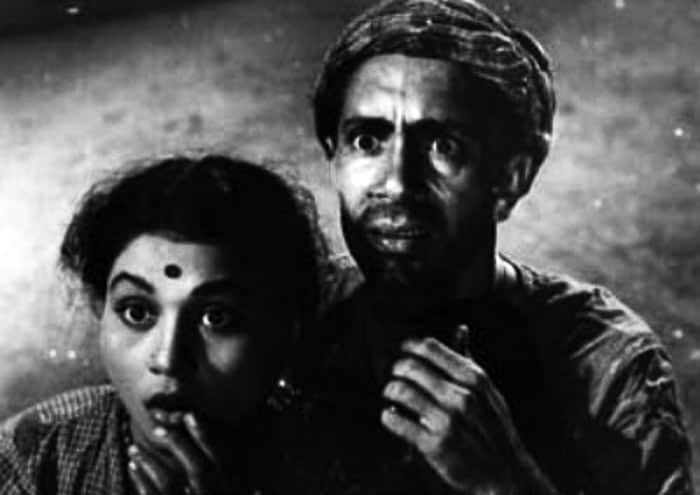 Do Bigha Zameen (1953): A tragic drama about a small farmer compelled by debt to relocate to the big city and become a rickshaw-puller, Do Bigha Zameen exposed the vice-like grip that ruthless zamindars had on agriculture in newly-independent India. It is generally regarded as one of the earliest and finest examples of "neo-realism" in Indian cinema. Made in 1953, Do Bigha Zameen probably would have made it as India's Oscar pick were it not for the fact that we only started sending Oscar submissions in 1958, beginning with Mother India.
Do Bigha Zameen (1953): A tragic drama about a small farmer compelled by debt to relocate to the big city and become a rickshaw-puller, Do Bigha Zameen exposed the vice-like grip that ruthless zamindars had on agriculture in newly-independent India. It is generally regarded as one of the earliest and finest examples of "neo-realism" in Indian cinema. Made in 1953, Do Bigha Zameen probably would have made it as India's Oscar pick were it not for the fact that we only started sending Oscar submissions in 1958, beginning with Mother India. -
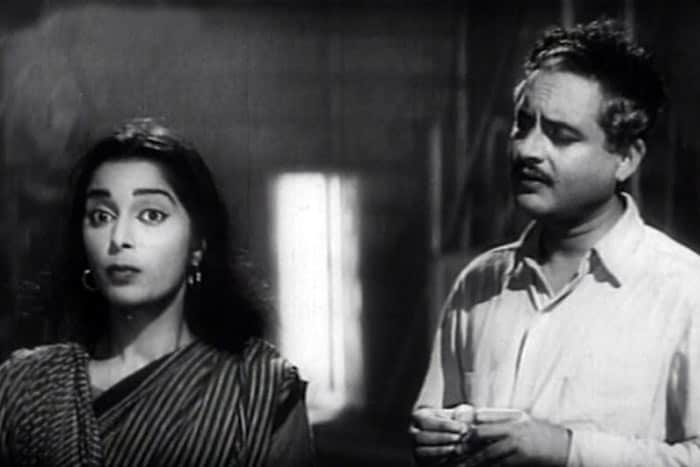 Kaagaz Ke Phool (1959): Guru Dutt's most melancholic film ever, starring muse Waheeda Rehman, takes his deepening disillusionment with the world and its guardians to a new level of despair. In 1960, India sent Satyajit Ray's Apur Sansar or The World Of Apu to the Oscars.
Kaagaz Ke Phool (1959): Guru Dutt's most melancholic film ever, starring muse Waheeda Rehman, takes his deepening disillusionment with the world and its guardians to a new level of despair. In 1960, India sent Satyajit Ray's Apur Sansar or The World Of Apu to the Oscars. -
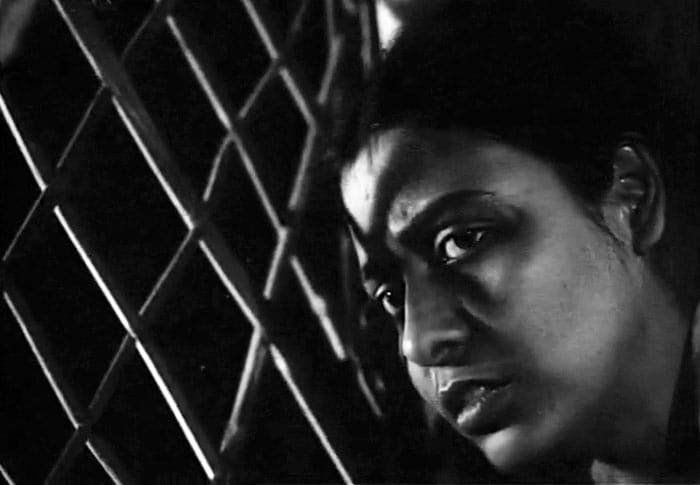 Meghe Dhaka Tara (1960): Ritwik Ghatak's best known and most commercially successful film took the international film festival circuit by storm with it's stylized tale of the tragic twists of fate of it's female protagonist. No Indian film was sent to the Oscars in 1961.
Meghe Dhaka Tara (1960): Ritwik Ghatak's best known and most commercially successful film took the international film festival circuit by storm with it's stylized tale of the tragic twists of fate of it's female protagonist. No Indian film was sent to the Oscars in 1961. -
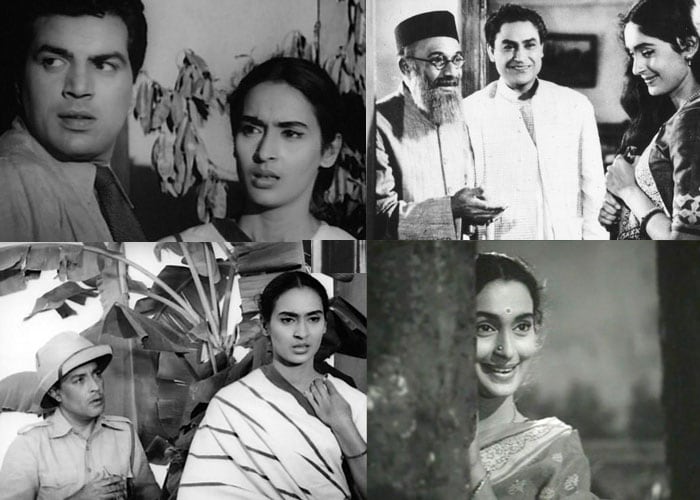 Bandini (1963): The last film from Bimal Roy, director of Do Bigha Zameen and Devdas, Bandini is the tale of a village girl jailed for murder and the choice she must make between two men. Considered Nutan's career-best performance, Bandini won the National Award for Best Film. In 1964, India sent Satyajit Ray's Mahanagar or Metropolis to the Oscars.
Bandini (1963): The last film from Bimal Roy, director of Do Bigha Zameen and Devdas, Bandini is the tale of a village girl jailed for murder and the choice she must make between two men. Considered Nutan's career-best performance, Bandini won the National Award for Best Film. In 1964, India sent Satyajit Ray's Mahanagar or Metropolis to the Oscars. -
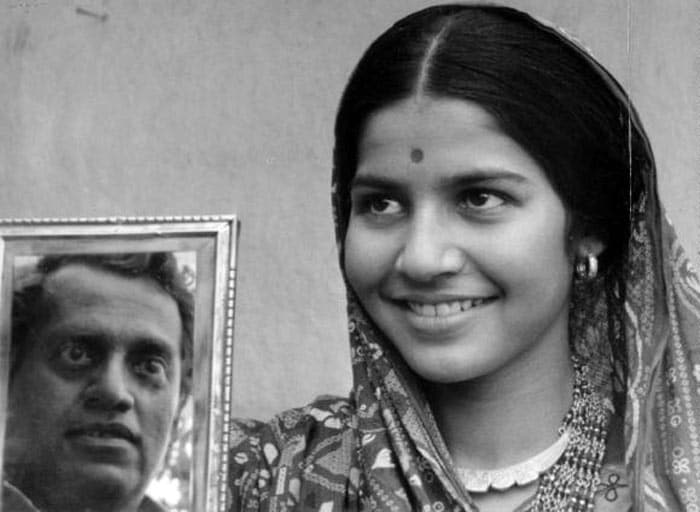 Bhuvan Shome (1969): Starring Utpal Dutt and Suhasini Mulay, this small Film Finance Corporation-funded satire was Mrinal Sen's big national-level break. Many also regard it as the film that marked the beginning of the New Indian Cinema movement. The story of an uncompromising civil servant who takes a holiday, encounters village girl Gouri and is deeply transformed by his experience, Bhuvan Shome won three National Awards – Best Film, Best Director and Best Actor. In 1970, India sent Tamil film Deiva Magan to the Oscars.
Bhuvan Shome (1969): Starring Utpal Dutt and Suhasini Mulay, this small Film Finance Corporation-funded satire was Mrinal Sen's big national-level break. Many also regard it as the film that marked the beginning of the New Indian Cinema movement. The story of an uncompromising civil servant who takes a holiday, encounters village girl Gouri and is deeply transformed by his experience, Bhuvan Shome won three National Awards – Best Film, Best Director and Best Actor. In 1970, India sent Tamil film Deiva Magan to the Oscars. -
 Anand (1971): A terminally ill hero is determined to make the most of the remaining months of his life. In one of his early starring roles, Amitabh Bachchan played a Bengali doctor who develops a deep emotional connect with the dying man, played by the formidable Rajesh Khanna. In 1972, Sunil Dutt's Reshma Aur Shera was picked for the Oscars.
Anand (1971): A terminally ill hero is determined to make the most of the remaining months of his life. In one of his early starring roles, Amitabh Bachchan played a Bengali doctor who develops a deep emotional connect with the dying man, played by the formidable Rajesh Khanna. In 1972, Sunil Dutt's Reshma Aur Shera was picked for the Oscars. -
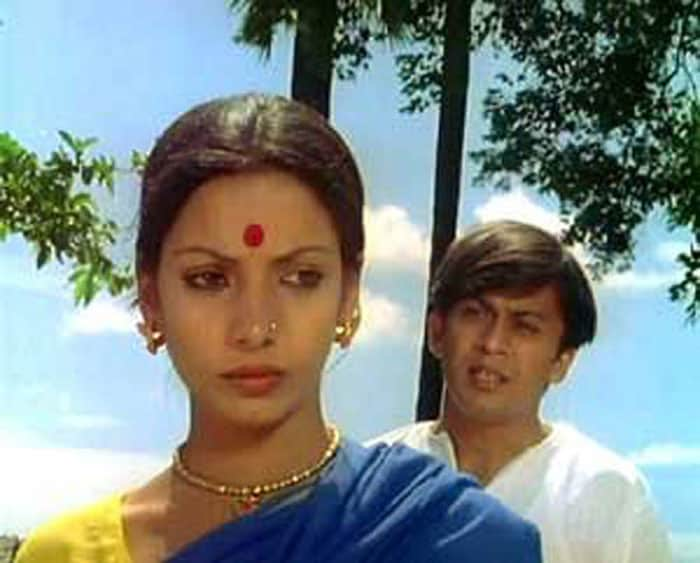 Ankur (1974): Starring Shabana Azmi as a village girl married to a disabled and alcoholic potter, Shyam Benegal's commentary on patriarchy and casteism won three National Awards – Second Best Film, Best Actor and Best Actress. In 1975, India sent M S Sathyu's Garam Hawa or Hot Winds to the Oscars.
Ankur (1974): Starring Shabana Azmi as a village girl married to a disabled and alcoholic potter, Shyam Benegal's commentary on patriarchy and casteism won three National Awards – Second Best Film, Best Actor and Best Actress. In 1975, India sent M S Sathyu's Garam Hawa or Hot Winds to the Oscars. -
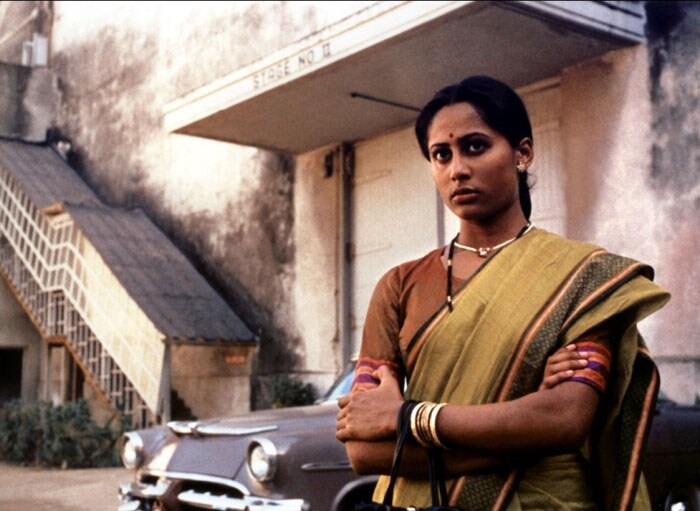 Bhumika (1977): Shyam Benegal's fictionalised adaptation of the life and many loves of Marathi actress Hansa Wadkar won two National Awards – Best Movie and Best Actress for Smita Patil. In 1978, India sent Shyam Benegal's Manthan to the Oscars.
Bhumika (1977): Shyam Benegal's fictionalised adaptation of the life and many loves of Marathi actress Hansa Wadkar won two National Awards – Best Movie and Best Actress for Smita Patil. In 1978, India sent Shyam Benegal's Manthan to the Oscars. -
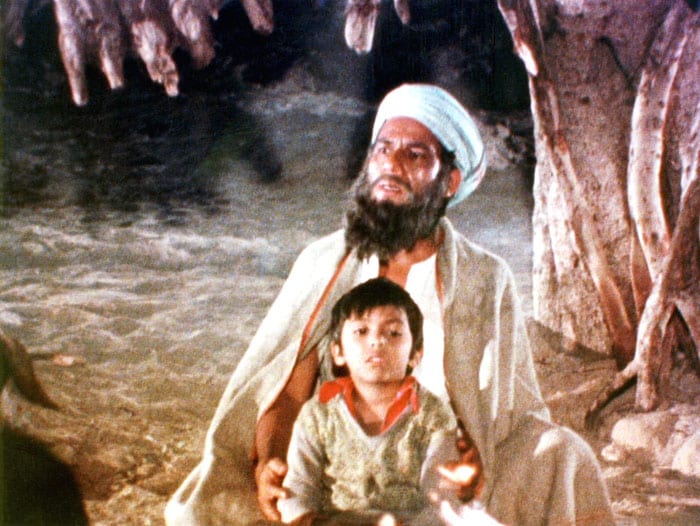 Bhavni Bhavai (1980): Ketan Mehta's Gujarati film intertwines folk narrative and filmmaking and is considered among his most accomplished works. Starring Naseeruddin Shah, Smita Patil and Om Puri Bhavni Bhavai was critically acclaimed, especially for it's format. In 1981, India sent Satyen Bose's Payal Ki Jhankaar to the Oscars.
Bhavni Bhavai (1980): Ketan Mehta's Gujarati film intertwines folk narrative and filmmaking and is considered among his most accomplished works. Starring Naseeruddin Shah, Smita Patil and Om Puri Bhavni Bhavai was critically acclaimed, especially for it's format. In 1981, India sent Satyen Bose's Payal Ki Jhankaar to the Oscars. -
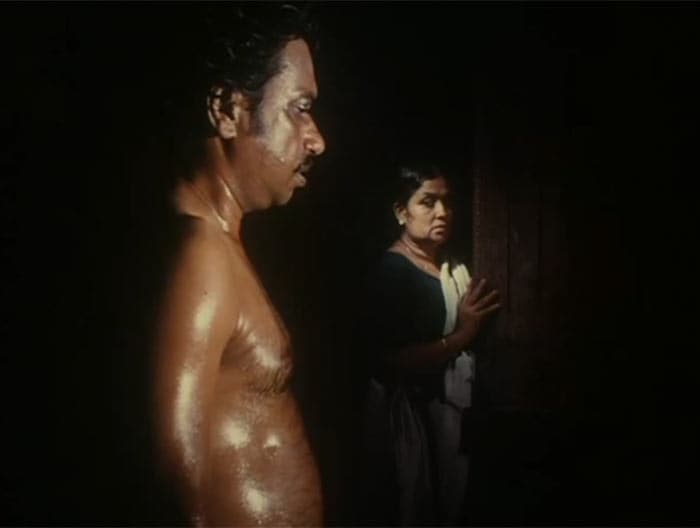 Elippathayam (1981): Adoor Gopalakrishnan's most accomplished film traces the last legs of a decaying feudal order in Kerala. It revolves around Unni, a middle-aged man who cannot pace with the changing world around him. In 1982, no Indian film was sent to the Oscars.
Elippathayam (1981): Adoor Gopalakrishnan's most accomplished film traces the last legs of a decaying feudal order in Kerala. It revolves around Unni, a middle-aged man who cannot pace with the changing world around him. In 1982, no Indian film was sent to the Oscars. -
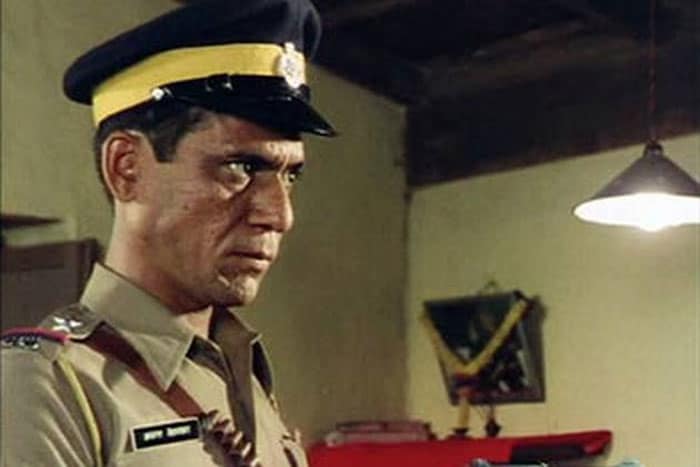 Ardh Satya (1983): Govind Nihalani's riveting tale about a cop caught between his personal problems and corruption in the police department catapulted Om Puri to instant stardom, earning him the National Award for Best Actor. No Indian film was sent to the Oscars in 1984.
Ardh Satya (1983): Govind Nihalani's riveting tale about a cop caught between his personal problems and corruption in the police department catapulted Om Puri to instant stardom, earning him the National Award for Best Actor. No Indian film was sent to the Oscars in 1984. -
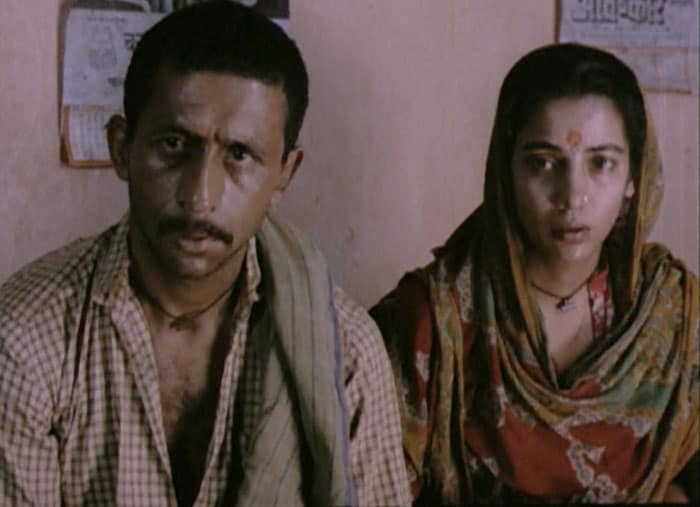 Paar (1984): The story of a poverty stricken couple who are forced to leave their village because of oppression by the zamindar, Goutam Ghose's poignant tale of the urban-rural divide and the feudal system won National Awards for it's stars Naseeruddin Shah and Shabana Azmi. Mahesh Bhatt's Saaransh was picked for the Oscars in 1985.
Paar (1984): The story of a poverty stricken couple who are forced to leave their village because of oppression by the zamindar, Goutam Ghose's poignant tale of the urban-rural divide and the feudal system won National Awards for it's stars Naseeruddin Shah and Shabana Azmi. Mahesh Bhatt's Saaransh was picked for the Oscars in 1985. -
 Udaan (2010): The coming-of-age story about a 17-year-old dreams of becoming a writer are shot down by his authoritarian and abusive father, Udaan was officially selected to compete in the Un Certain Regard category at the Cannes Film Festival that year. Anusha Rizvi's Peepli Live was India's Oscar entry in 2011.
Udaan (2010): The coming-of-age story about a 17-year-old dreams of becoming a writer are shot down by his authoritarian and abusive father, Udaan was officially selected to compete in the Un Certain Regard category at the Cannes Film Festival that year. Anusha Rizvi's Peepli Live was India's Oscar entry in 2011.
Advertisement
Advertisement
Advertisement
Advertisement